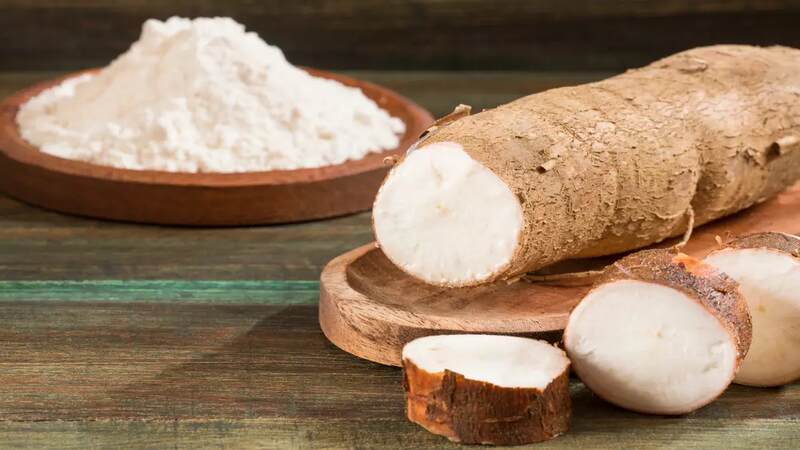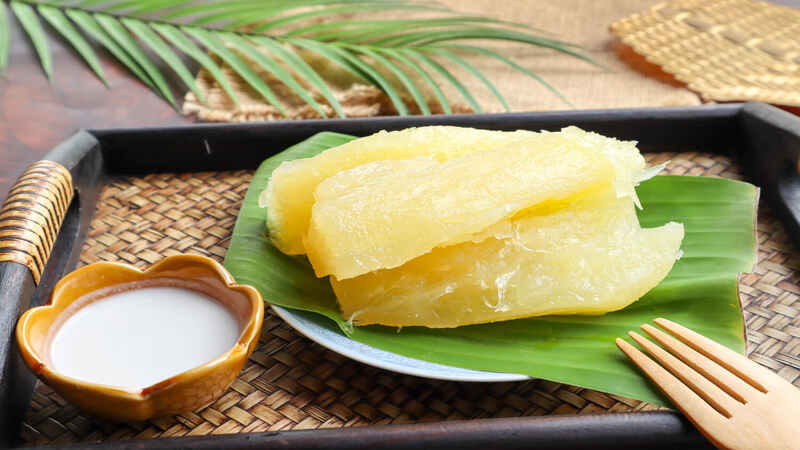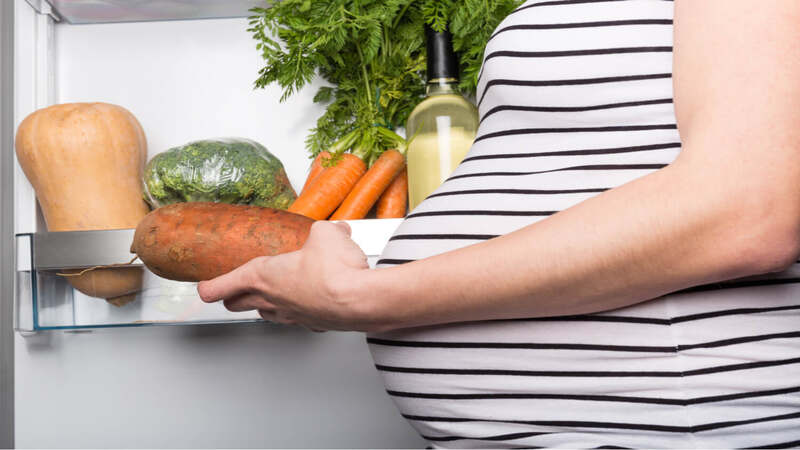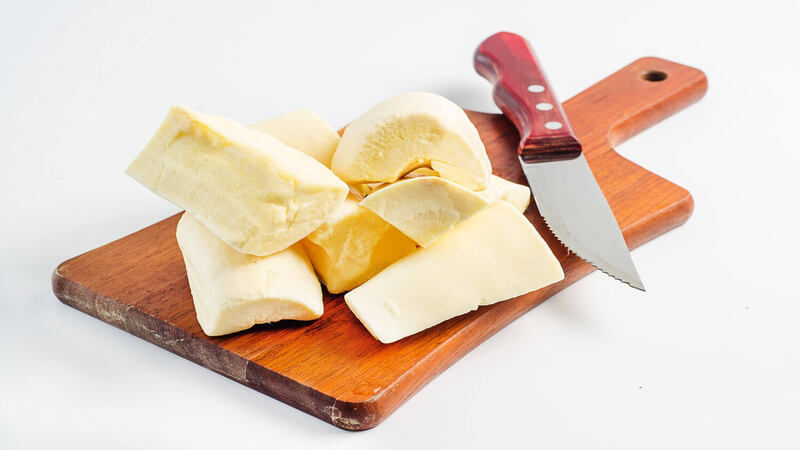
Tapioca is a starchy extract obtained from the cassava root and is commonly used in various dishes, such as puddings and bubble tea. It is available in both pearl and flour forms. In Kerala, the term “kappa” refers to the cassava root itself, which can be boiled, mashed, or cooked in curries. Tapioca chips are quite popular. This raises a common question among expectant mothers: is tapioca safe for pregnancy? The answer is yes—tapioca while pregnant is generally considered safe when it’s properly processed and cooked. Tapioca provides essential carbohydrates, offering a quick energy boost during pregnancy. However, raw cassava can be toxic, so it’s crucial to ensure it comes from trusted sources. Many wonder, can pregnant women eat tapioca? When consumed in moderation, it can be a valuable addition to a balanced diet.
Including tapioca in pregnancy meals can enhance variety and nutrition, especially when combined with other wholesome foods. A well-rounded diet during pregnancy should include nutrient-rich root vegetables, such as cassava. Known for its high vitamin C content and antioxidant properties, cassava supports immune health and collagen production. With proper preparation, tapioca consumption during pregnancy can be both safe and beneficial for expectant mothers.
Video Of Safety Of Cassava Root/ Tapioca During Pregnancy
What is the Nutritional Value of Cassava Root?
Broadly speaking, raw cassava is about 60% water, 38% carbohydrates, and around 1% protein. The fat content of this root vegetable is negligible.
Here is the nutritional value of raw cassava root. 100 grams of cassava root also provide the following vitamins and minerals: (1)
| Nutrients | Value |
|---|---|
| Calories | 159 Kcal |
| Carbs | 38 grams |
| Fibers | 1 gram |
| Protein | 1.4 grams |
| Vitamin C | 34% of RDI |
| Thiamine | 7% of RDI |
| Folate | 7% of RDI |
| Pyridoxine | 7% of RDI |
| Riboflavin | 4% of RDI |
| Niacin | 5% of RDI |
| Magnesium | 5% of RDI |
| Phosphorous | 4% of RDI |
| Iron | 3% of RDI |
| Zinc | 3% of RDI |
| Potassium | 279 mg |
Does Cooking Affect the Nutritional Value of Cassava Roots?

Yes. Peeling, chopping, and cooking cassava will bring down its nutritional value significantly. Yet, it is not at all safe to eat raw cassava as it has some poisonous properties.
Is Tapioca Safe For Pregnancy?
Yes, tapioca is generally safe during pregnancy when consumed in moderation and properly prepared. Cassava contains naturally occurring compounds that can be toxic if not cooked properly.
During pregnancy, it’s important to choose sweet cassava, which contains lower levels of cyanide and is generally safer to eat; avoid bitter cassava, as it has higher cyanide content and requires extensive processing to be made safe. Sweet cassava is the type most commonly found in markets.
Overconsumption and consuming undercooked cassava roots are extremely harmful during pregnancy.
What is the Safest Quantity of Cassava Root to Consume During Pregnancy?
Moderation is essential when it comes to tapioca in pregnancy. A recommended serving size of cassava root is approximately 1/3 to 1/2 cup at a time. It should be thoroughly cooked, and you should consume it only occasionally.
Is Eating Cassava Chips Safe During Pregnancy?

A chemical called Acrylamide is produced naturally while cooking starch-rich food at high temperatures (like frying). Acrylamide is potentially harmful to unborn babies. (2). Cassava chips fall under this group. You can have a bite occasionally if you crave it. However, over-consumption and frequent consumption of any kind of chips should be avoided during pregnancy.
Are the Products Made From Cassava Roots Safe During Pregnancy?
Sabudana and cassava flour are two important products made from cassava roots. Both are safer when compared to cooked cassava roots. This is because, during the process of making these products, most of the harmful chemicals are eliminated from the cassava root.
Does Cassava Increase the Chances of Twins?
Research suggests that taking cassava root supplements may increase the chances of conceiving twins. Studies indicate that after consuming concentrated cassava supplements, the likelihood of conceiving twins can increase by up to 50%. (3). This phenomenon is attributed to the hyperovulation properties of the cassava root. Therefore, it is excellent to enhance overall fertility as well.
What are the Benefits of Cassava Roots During Pregnancy?

Cassava root, also known as manioc or yuca, is a starchy tuber that offers several potential benefits during pregnancy when prepared and consumed properly. While it is a staple in many diets worldwide, pregnant women should ensure cassava is thoroughly cooked to eliminate naturally occurring toxins. Here are eight research-backed benefits of cassava root during pregnancy:
1. Rich Source of Folate for Fetal Development
Cassava root is a valuable source of folate, a B-vitamin essential for fetal neural development. Adequate folate intake during pregnancy helps reduce the risk of neural tube defects, such as spina bifida. (4) Consuming cassava can contribute significantly to meeting daily folate requirements
2. Provides Sustained Energy
The high carbohydrate content in cassava root offers a steady source of energy, which is crucial during pregnancy to support increased metabolic demands. The slow-digesting carbohydrates help maintain energy levels and manage fatigue. (5)
3. Supports Digestive Health
Cassava root contains dietary fiber that aids in digestion and helps prevent constipation, a common discomfort during pregnancy. The fiber content facilitates smoother digestive processes, ensuring nutrient absorption and regular bowel movements.
4. Enhances Immune Function
Rich in vitamin C, cassava root boosts the immune system, which is vital during pregnancy. Vitamin C also aids in the absorption of iron, essential for preventing anemia and supporting overall maternal health.
5. Contributes to Bone Health
Cassava root contains minerals like calcium and magnesium, which are important for maintaining strong bones and teeth. These minerals support both maternal and fetal bone health during pregnancy.
6. Promotes Healthy Skin and Vision
Some varieties of cassava root are fortified with vitamin A, which is beneficial for maintaining healthy skin and vision during pregnancy. Vitamin A supports fetal development and helps prevent complications related to vision and skin health.
7. Gluten-Free Option for Sensitive Diets
Cassava root is naturally gluten-free, making it a suitable alternative for pregnant women with celiac disease or gluten sensitivity. It can be used in various forms, such as flour, to prepare gluten-free meals.
What are the Side Effects of Cassava Root During Pregnancy?
In spite of holding vitamins and minerals that are very beneficial during pregnancy, cassava roots have some side effects that should not be overlooked.
1. Contains Anti-Nutrients
This is the major drawback of this root vegetable. Anti-nutrients are compounds that may get in the way of digestion and hinder the absorption of vitamins and minerals in the body. This side effect becomes prevalent in those who do over, frequent, and sole consumption of cassava roots.
2. Chances of Cyanide Poisoning
Raw cassava contains chemicals called cyanogenic glycosides. These chemicals are capable of releasing cyanide into the body. Therefore, over- or regular consumption can result in cyanide poisoning, which can bring about adverse symptoms and sometimes can turn deadly. Its important to keep this in mind when eating tapioca during pregnancy first trimester.
3. High in Calories
Cassava roots are high in calories. In fact, its calorie level is very high when compared to other root vegetables. Intake of high-calorie foods is associated with weight gain and obesity.
Selecting and Storing Cassava
Cassava will be available year-round in Asian markets. Always ensure to buy fresh ones and to cook them within 10 days of purchase.
How to Select Cassava
Select cassava roots that are:
- Fresh and firm
- Have no blemishes or soft spots
- Has no cuts or breaks in the skin
- Have a nice smell
- Appears snowy white when cut open.
- Not old stock
How to Store Cassava
You can store,
- Peeled cassava covered with water in the refrigerator for up to four days.
- Whole cassava in a cool, dark place for one week.
- While storing cut, fresh cassava in the refrigerator, always remember to change the water daily.
[Read: 12 Amazing Benefits Of Ginger During Pregnancy]
How Do You Know if Cassava is Bad?
You can find it out from the smell and appearance. If the cassava roots have brown soft spots and a putrid smell or any signs of decaying or being rotten, never cook or buy those ones.
How to Safely Prepare Cassava For Consumption During Pregnancy?

Peeling and soaking cassava in the right manner is very important for safe consumption during pregnancy.
1. Peel
Most of the cyanide-producing compounds are present in the outer skin of cassava roots. Therefore, peel its outer skin up until you see the inner white part.
2. Soak
After peeling, washing, and slicing, soak the cassava root overnight in salt water to bring down the concentration of harmful chemicals in it. You can even add turmeric, which is highly beneficial in eliminating toxins, if you don’t mind the cooked cassava roots looking yellowish.
3. Remove the Core
Always remove the core of the cassava root before cooking.
4. Cook Well
Make sure the cassava roots are well-cooked before consuming. Boil the cassava roots well in salt water. This will help to remove the harmful chemicals from the cassava roots. Discard the water in which you boiled the cassava roots. In this way, you can minimize the presence of harmful chemicals.
5. Combine With Protein
Proteins help our body to get rid of toxins. Cassava root has relatively small amounts of protein. Therefore, eat a combo of cooked and mashed cassava roots with some protein food. It goes very well with fish and meat.
6. Do Not Solely Rely on It
Never ever rely solely on this cooked root. You can have it with other varieties of foods or as a side dish.
Incorporating Cassava Into the Pregnancy Diet
You can incorporate cassava into your pregnancy diet in one of the following ways
- Prepare cassava root dishes the same way as you prepare potato dishes. Cook it well and mash it and prepare stir-fries.
- Use it as a thickener while preparing vegetable soups.
- Make cutlets.
- Prepare crackers and bread with cassava flour.
Even though beneficial, the risks posed by cassava roots prevail over their advantages. Therefore, cassava is not supposed to be a part of your pregnancy diet, even if you can eat well-cooked cassava roots in moderation once in a while during the gestation period.
[Read: Eating Turnips During Pregnancy]
FAQ’s
1. Do Gluten-Free Products Contain Tapioca?
Tapioca is gluten-free. Hence tapioca flour is used in producing many gluten-free products. If you are worried about consuming tapioca during pregnancy, check the ingredients.
2. Can I Eat Cassava After the Delivery?
No, it is not recommended. As the cassava root has many negative properties, it is not considered very safe. It can negatively impact your baby’s thyroid.
3. Can I Increase My Cassava Intake if I Want to Get Pregnant With Twins?
No, please don’t. Consuming cassava is known to increase the “chance” of having twins. It is no guarantee. The side effects of consuming too much cassava root are more than this benefits it could possibly offer.
4. What Should I do, if I Crave Cassava During Pregnancy?
Try to limit your intake. Consume some protein-rich foods along with the cassava. Protein can help remove the toxins you ingest through cassava.
Read Also: Is It Safe To Eat Potatoes During Pregnancy?
Reference
- U.S. Department of Agriculture – https://fdc.nal.usda.gov/food-details/169985/nutrients
- Pekmezci H, Basaran B. Dietary acrylamide exposure and health risk assessment of pregnant women: A case study from Türkiye – https://pmc.ncbi.nlm.nih.gov/articles/PMC10867474/
- Commonly asked questions and answer – https://foreverblessedtwins.com/commonly-asked-questions-answers/
- Ami N, Bernstein M, Boucher F, Rieder M, Parker L; Canadian Paediatric Society, Drug Therapy and Hazardous Substances Committee. Folate and neural tube defects: The role of supplements and food fortification – https://pmc.ncbi.nlm.nih.gov/articles/PMC4933077/
- Julie E. Holesh; Sanah Aslam1; Andrew Martin; Augusta University Health; Campbell University – https://www.ncbi.nlm.nih.gov/books/NBK459280/
